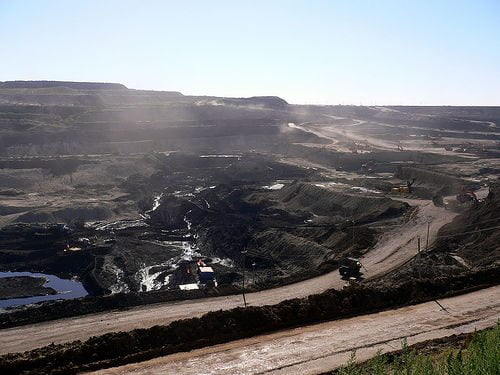

Energy
Water scarcity and steep energy costs ‘biggest risk’ to mining industry
Research conducted by consultancy firm EY has deemed the lack of access to water, especially in South America and Africa, as the greatest risk to sustainability in the mining industry.
Mining companies increased spending on water infrastructure by 250% last year, totalling at $12 billion (£7bn), compared to $3.4 billion (£1.8bn) in 2009 – moving the issue into the top 10 problems the industry now faces, alongside resource nationalism and declining productivity rates.
Global energy prices have also risen by 260% since 2000, pressing the industry to increase investment into renewable energies, the report stated. It added, “It needs to become core to operations.”
Large mining companies, like BHP Billiton and Rio Tinto, are investing heavily into projects like a desalination plant at the world’s largest copper mine, in Escondida, Chile. Other desalination plants use renewable energies to power the water purifying technology, which could potentially offer the solution needed for the industry crisis.
EY’s global mining and metals leader Mike Elliott said, “With global demand for energy expected to increase 36% by 2025, and with falling ore grades, risk related to access to water and energy is compounding year by year with the sector facing higher energy prices and volatility.
“Managing costs sustainably is a priority and we expect to see increasing reliance on renewable energy in the sector as the cost declines, especially in remote areas.”
Large companies have the investment means to spend heavily on water treatment facilities, but smaller, independent miners, operating in these water scarce regions, will be hardest hit.
The majority of the world supply of non-precious metals comes from South America and Africa, particularly copper. In Chile, the world’s biggest copper exporter, the National Grid, dedicates 30% of its output to mining operations. The report has suggested a greater emphasis be placed on renewable energies.
Photo source: HerryLawford via Flickr
Further Reading:
A world without water: Financial Times counts the cost of water scarcity
Government predicts an overcrowded planet riddled with conflict by 2050
Resource inefficiency impacting prices, economies and environment, says UN
Co-operation among stakeholders ‘key’ to securing future water resources
Huge Alaskan mining operation stopped by EPA on environmental grounds


 Environment12 months ago
Environment12 months agoAre Polymer Banknotes: an Eco-Friendly Trend or a Groundswell?

 Features11 months ago
Features11 months agoEco-Friendly Cryptocurrencies: Sustainable Investment Choices

 Features12 months ago
Features12 months agoEco-Friendly Crypto Traders Must Find the Right Exchange

 Energy11 months ago
Energy11 months agoThe Growing Role of Solar Panels in Ireland’s Energy Future






























